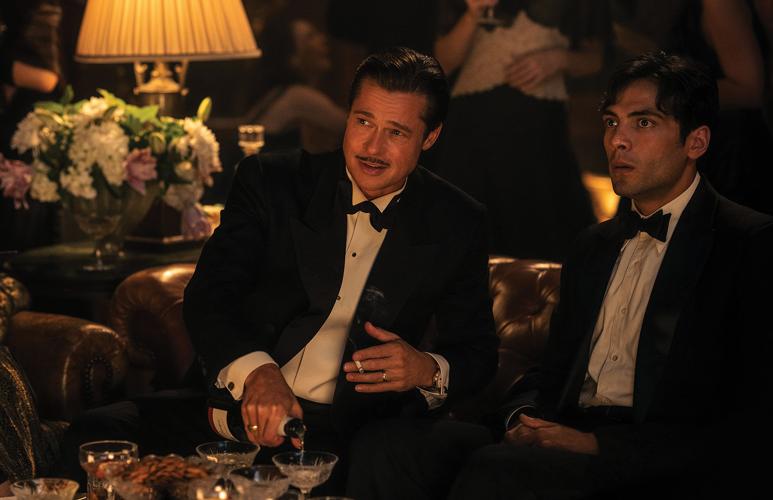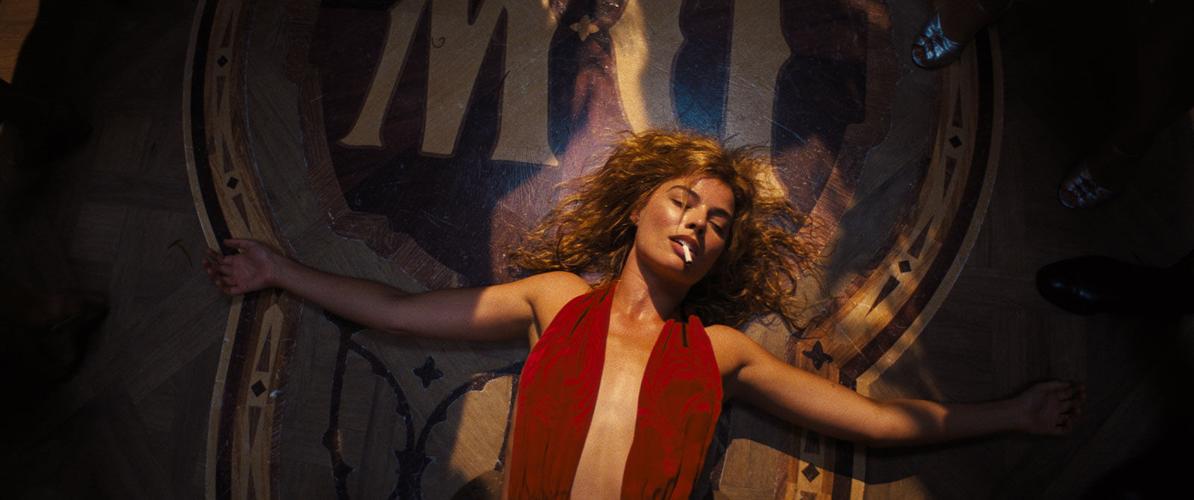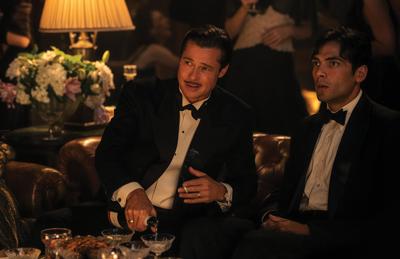At the corner of 42nd Street and The Wolf of Wall Street, you’ll find Babylon. Oscar winner Damien Chazelle’s latest film takes aim at the industry itself, and is a spectacular bacchanal that will leave you disoriented and amazed. Chazelle has a ton of fun exploring the flip side of the movie magic he extolled in La La Land, and while he’s certainly still romantic about the medium, here he spotlights its perverse, capitalistic underbelly.
You could say this is Chazelle’s Boogie Nights. Much like Paul Thomas Anderson’s landmark showbiz epic, Babylon tries to capture the glitz and glamour of Hollywood with a ribald lens. He turns filmmakers into roving party pirates, desperate for the high that only something as insane as moviemaking and stardom can give them. And when the show’s over, well, that’s when things really get dark. Babylon is of course far from the first film to delve into the dark side of celebrity. (Obviously … have you seen how many versions of A Star Is Born have been made?) But as with Oliver Stone’s polarizing sports drama Any Given Sunday — stellar and affrontive and tacky as it was — Babylon sets out to show us how the sausage is made.
Like the 1952 masterpiece Singin’ in the Rain, Babylon is set in the late 1920s, dropping us into Hollywood as the industry transitions from silent films to “talkies.” But it differs from that Gene Kelly song-and-dance classic in its brutal honesty. Chazelle aims to depict this Tinseltown how it actually was — Jay Gatsby run amok, before the Hays Code morality movement swept through Hollywood.
Chazelle draws up his central characters using three classic Hollywood archetypes — the new starlet (Margot Robbie’s Nellie LaRoy), the established leading man (Brad Pitt’s Jack Conrad) and the audience avatar who finds himself along for a wild ride (Diego Calva’s Manny Torres). LaRoy is a brash, often strung-out party girl who becomes famous by just walking onto a movie set. Conrad is the womanizing John Gilbert stand-in who might not have a future in talking pictures. Torres is the working-class dreamer who just wants to be part of something bigger than himself. All three give powder-keg performances, motivating Chazelle’s themes of moviemaking’s regality and ruin.

Babylon
Supported by that trio and some other inspired performances, Babylon has a lot of fun staging its on-set disasters and off-set debaucheries, but never quite shying away from their inherent horror. Just like The Wolf of Wall Street shows that Martin Scorsese was no fan of Jordan Belfort, Chazelle has no interest in celebrating the hedonism of Hollywood’s elite. Babylon is hilarious when it mocks, but it’s also got a devastating comedown. Chazelle nails the tonal tightrope walk in his most ambitious film yet.
We often separate the things we love from the inconvenient truths at their core. If you love football, you don’t always want to think about the brain injuries that have plagued many of the league’s retirees. If you love Top Gun: Maverick, it’s possibly in spite of Tom Cruise’s brand ambassadorship for Scientology. With Babylon, Chazelle forces us to square the grand emotions movies make us feel with the disturbing history of the medium.
Babylon seems destined to alienate half its audience, but it speaks the truth. Whereas Jordan Peele’s breathtaking Nope warns us not to look directly into the eye of the spectacle, Chazelle’s film — all 189 minutes of it — helps us come to terms with what happens when we do. We’re always going to love movies, but Babylon reminds us not to forget what’s on the other side of the curtain.







